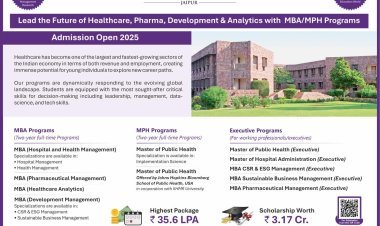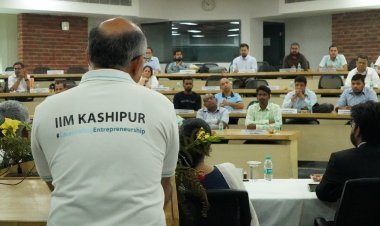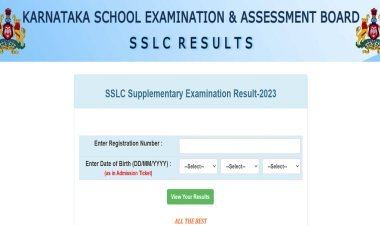PGDM or MBA-Which One Promises Better Career Growth in 2024


New Delhi (India), April 5: Thousands of students every year often go through the dilemma of choosing a career between an MBA and a PGDM. These aspirants choose such courses for their further studies, as they offer immense career opportunities. A university usually provides a management degree in business administration. Similarly, a Post Graduate Diploma in Management is available in private colleges and universities.
Students want to choose the best career in business and management after completing graduation. They find it challenging to choose the right career option that helps them to find the best job in the long run. This is why you need to know the essential differences between the two most popular courses. Ultimately, it boils down to one’s personal preference, which might become clear once you read this post.
What is PGDM?
The All India Council approves the Post Graduate Diploma in Management of Technical Studies. This program is completed in two years. In India, approximately five hundred institutions have received approval for offering PGDM courses in B-School. These institutions, including the JIMS Technical Campus, are responsible for designing their curriculum and upgrading it. When required, they will conduct their examination to evaluate their students. The curriculum is usually designed keeping in mind the ever-evolving industry demand so that the students get well placed.
Career Scopes after PGDM
Management Consulting – Consultancies actively recruit PGDM graduates for roles in strategy, operations, risk, and technology consulting. It provides the chance to work on key business issues.
Marketing & Sales – Consumer goods, telecom, and tech companies hire PGDM grads for marketing and sales leadership roles like Brand Manager, Category Manager, Sales Manager, Regional Sales Head, etc.
Financial Services – Investment banks, commercial banks, and financial institutions recruit PGDM graduates for roles in corporate finance, equity research, trading, credit analysis etc. High pay but demanding work.
Operations & Supply Chain – Manufacturing, automotive, and logistics companies hire PGDMs to oversee production operations, inventory, logistics and implementing process improvements.
Information Technology – IT firms and tech startups recruit PGDM graduates for product development, product management and technology consulting roles. Requires technical aptitude.
Human Resources – PGDMs are valued in HR roles across sectors for manpower planning, recruitment, training, policy making, organizational development etc.
Entrepreneurship – PGDMs also use their business education to set up startups in diverse sectors, from food and beverage to fintech to e-commerce.
Analytics & Market Research – Research agencies and companies across sectors value PGDMs for data crunching and making data-driven business decisions.
What is an MBA?
Universities offer the Master of Business Administration as a postgraduation degree program authorized by University Grants Commission. The program lasts for two years. The majority of universities grant permission to colleges to affiliate and teach the MBA program. This course is offered by over 5500 colleges and institutions throughout India. After five to ten years, the majority of colleges often alter their curricula. When we discuss placements, this renders the course needless and redundant. In general, student earnings are lower than those of their PGDM counterparts.
Career Scopes after MBA
Consulting – Top consulting firms highly seek MBA Program in Business Analytics. Consulting provides the opportunity to work on challenging business problems across various industries.
Investment Banking – Banks and financial services firms recruit MBAs for investment banking roles which involve helping companies raise capital, mergers and acquisitions, IPOs, etc. These roles are highly analytical and involve long work hours but offer high compensation.
Marketing/Brand Management – Consumer goods, technology, and pharmaceutical companies recruit MBAs for brand manager roles, which oversee marketing strategy for brands/product lines. This offers the chance to work closely with sales, research and development, advertising, etc.
Operations/Supply Chain Management – Manufacturing firms, retail organizations and logistics companies hire MBAs to identify and implement process improvements to improve efficiency and cut costs. These roles provide the chance to work with strategy and technology.
Product Management – Technology companies hire MBAs as product managers to guide product strategy and development. This role requires strong technical aptitude along with business skills.
Entrepreneurship – Many MBAs use their business education and network access to start their ventures across diverse industries, from technology to consumer goods. Accelerators at MBA schools provide support.
Corporate Leadership – Business education equips MBAs to rise into leadership roles like Chief Executive Officer, Chief Operating Officer, etc., within organizations.

Which Should One Go For— MBA or PGDM?
Given the current state of affairs, students would be better off choosing PGDM courses from JIMS Technical Campus because they emphasize real-world application and are more in line with the demands of the labour market. There’s a chance that the student will learn and get expertise with a greater range of business topics than an MBA because the material is tailored annually.
Also, unlike MBA, PGDM’s hands-on, experiential learning approach gets you ready for tackling real-world field challenges. On the other hand, an MBA Program in Business Analytics is the better option if worries about the typically high costs of management degrees exist.
Conclusion
Students who wish to follow one of the stated programmes but are having trouble deciding which one would work best for them can use this page for help. According to what the courses have in store for the students who choose to pursue them, the article highlights the key distinctions between the two programmes.
Every distinction between the two courses that sets them apart has been covered. As previously said, there is a larger chance of students pursuing PGDM in light of business developments in 2024. However, with the help of this article, students may choose a job that is more appropriately suited for them by learning more about the requirements and potential benefits of each of these courses.
If you have any objection to this press release content, kindly contact pr.error.rectification@gmail.com to notify us. We will respond and rectify the situation in the next 24 hours.



















































